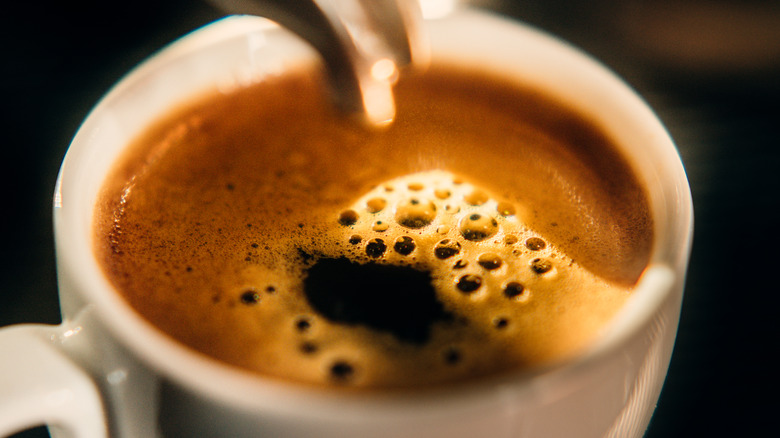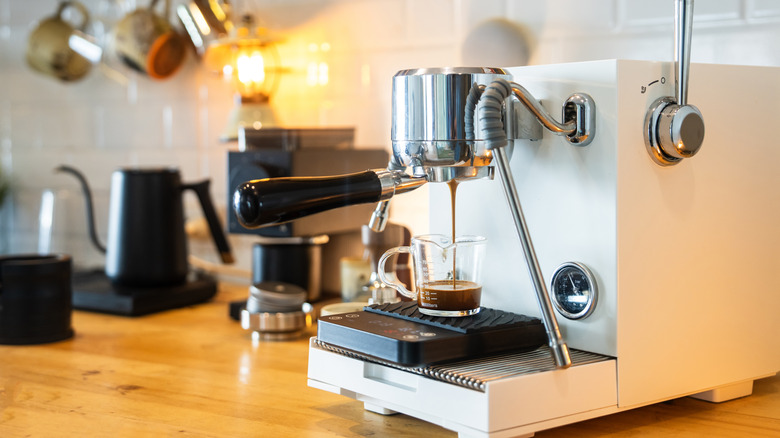Why Cafe Espresso Tastes Better Than What You Make At Home
There's something uniquely delicious about getting espresso from your favorite cafe or coffee shop (yes, there's a difference). The intricate flavors of professionally-made coffee often make people crave the ability to replicate it from the comfort of their own homes, but that is unfortunately much easier said than done. Even for those that own an espresso maker and know how to grind coffee beans correctly, the gap between homemade coffee and the coffee they find at their local shop is still seemingly impossible to close. For this reason, we looked to Donny Raus — founder of Raus Coffee Company, certified espresso sommelier, and Q-grader — to give us some insight into what makes coffee shop espresso so much better than the stuff we make at home.
For starters, Raus explained that low-quality equipment and a lack of knowledge on how to use it are the most likely reasons why your espresso is lacking. "If you don't have equipment capable of producing the pressure and extracting evenly, you can't expect to get a cafe-quality result," Raus explained. "Espresso, like most things, looks easy until you get into the details [...] Most home espresso brewers don't know what ratios will work best for their machines or the parameters they should be using. As a result, their brew tastes bitter or astringent."
Knowledge is power when making espresso at home
Beyond knowing how to use your equipment correctly, the freshness of the coffee beans also plays a big part in your coffee's overall taste. Home-ground coffee beans only stay fresh for around 30 minutes, so timing is crucial for creating the ideal drink. Raus reinforced this idea, stating, "Your espresso is only as good as the coffee beans you use."
When it comes to truly closing the gap between your espresso and the stuff at your local coffee shop, however, there's more to it than simply avoiding these mistakes. Commercial espresso machines cost upwards of $2,000 each, and Raus says that expecting to make cafe-quality espresso without a cafe-quality machine is, frankly, unreasonable. So, if you're a beginner who wants to make espresso at home, it's important to be aware of your limitations while continuing to expand your knowledge of the wide world of coffee. "I would suggest getting a training session with someone who knows espresso. This will cut your time in half, as most home brewers new to espresso waste time on things that don't matter," Raus noted. "Again, depending on your machine, your result may be limited, but at least we can get you to the best result possible."

